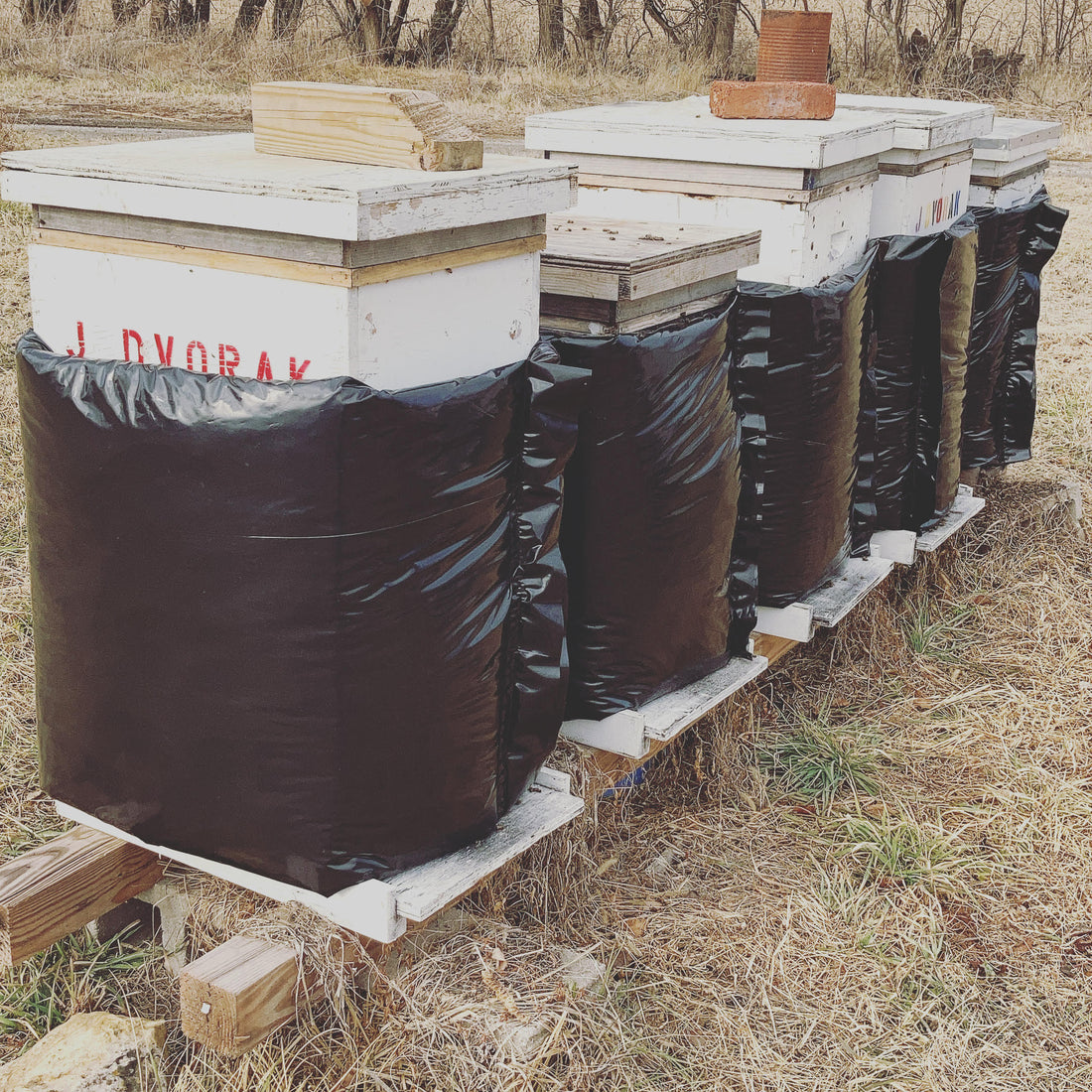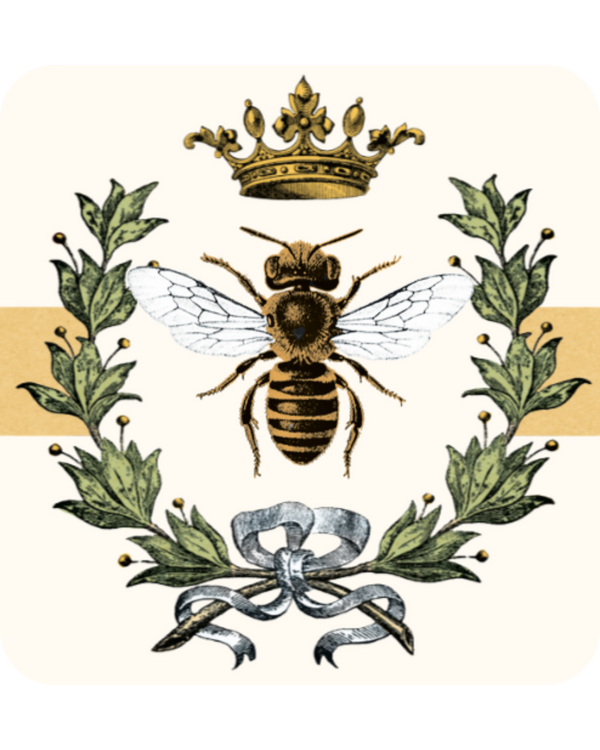
Winter, BEE-utiful wonderland?
Share
Many people have been asking me, "Jocelyn, what does the cold do to your hives?" As a beekeeper, I will always have a winter hive loss. Naturally I plan for about 25% of my hives to die over winter or be very weak coming out of winter. This does not necessarily mean I take bad care of them. It is just natures way of establishing her "survival of the fittest" policy. (The picture is of the bees snuggly wrapped for winter in their "coats").
What causes these losses?
There are many things that can effect a bee colony loss. The most I commonly talk about is lack of food. Thankfully this is also one of the most combatable problems. As a beekeeper I extract honey to sell, but the bees also need that honey. Bees do not make honey for the fun of it. Honey is their source of winter nutrition. If I take to much, I will kill the hive. That being said there are ways to treat them sustainably.
What can beekeepers do to prevent hive losses?
1.) I can set a "frame limit"
A "frame limit" is what I can take versus what is left in the box. Depending on how big the hive is, I can figure a very generous ration needed for the bees and then take whatever is left. Normally in a three box level (or taller) hive, I can take whatever is produced in the third box and above. I do still have to check the bottom boxes to ensure they have honey in them and are not just full of eggs.
2.) Sugar!
Feeding a home made sugar syrup or dry sugar to the bees has been helpful. Mixing water and sugar together, I fill syrup feeders and set them in the hive on the warm day of late fall and winter. I can also place sugar on a top board above the box that the bees can access all winter. This ensures that the bees will always have extra food incase the honey production is dwindling. One benefit to dry sugar is because it sits in the hive it can draw in extra moisture from it's environment. This keeps the hive both dry and warmer in the cold winter. One thing I have to be careful of is I never use sugar made honey to sell.
3.) Hives should be spread out to keep robbing down.
Bees will rob honey out of other hives. This not only hurts a weaker hive, but also makes no extra honey for sale or winter. If robbing is occurring it is normally because A.) there are no flowers available (drought, flood, cold etc.), B.) the hive being robbed is extremely week and therefore an easy target, or c.) there are way too many hives in the area to keep up with the land. To ensure this doesn't happen, we space bees into different yards with hives of similar stages of development. We may put weaker hives together to keep stronger hives from thieving. We may also give a weaker hive sugar substitute, a better lot of flora, or even just not take honey.
What can you do for a beekeeper?
1.) Plant a flower garden.
Although small and seemingly useless, bees will travel in a five mile radius in search of food. Even town houses can participate if there are bee hives outside city limits. If everyone had a flower garden we could produce SOOOO much honey! Flowers such as bee balm can make a great difference for honey bees. You can also find bee friendly fruits and vegetables. Because bees will pollinate, you will even get a treat at the end of it all, fresh fruit and veggies!
2.) Do NOT spray dandelions and clover!
My dad used to spray dandelions all the time (he was an agronomist). He would not stop until our lawn was as green as possible. Now we let our grass grow out until bloom and mow after pollination. Dandelions, clover, and other spring plants are some of the first pollen sources for bees and sometimes make or break the foundation of the years honey flow. If there is a ton of pollen at the beginning of the year, the bees will get more food, and the queen will lay more eggs because of that abundance of food. This means we then get more workers and produce more honey!
